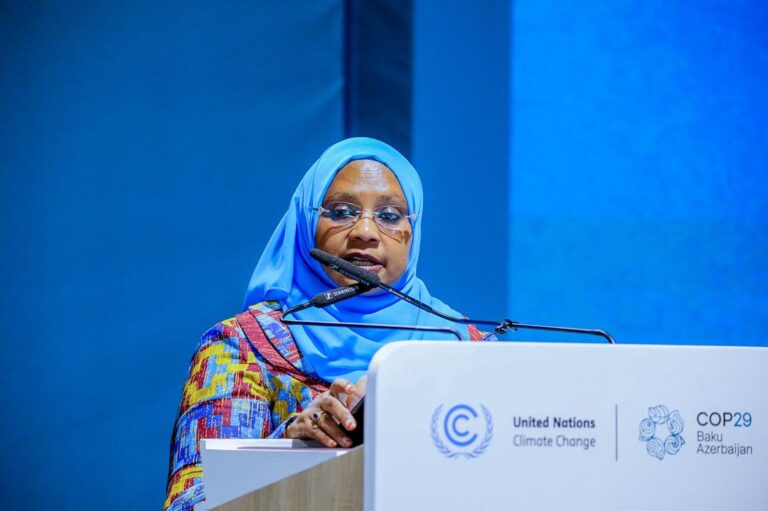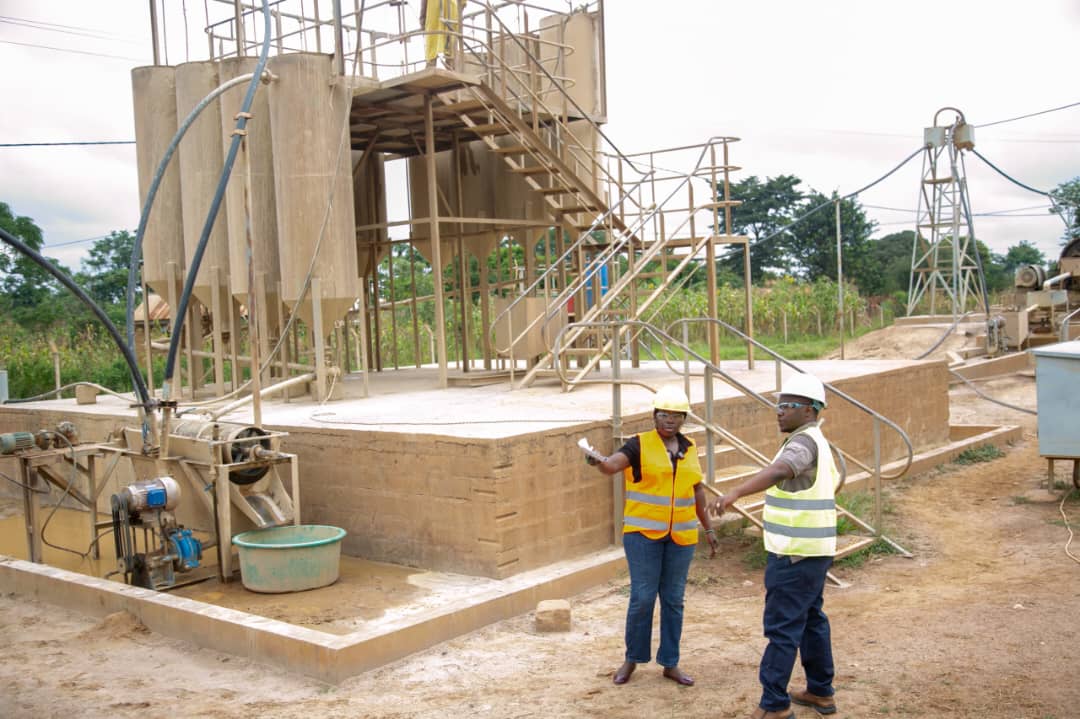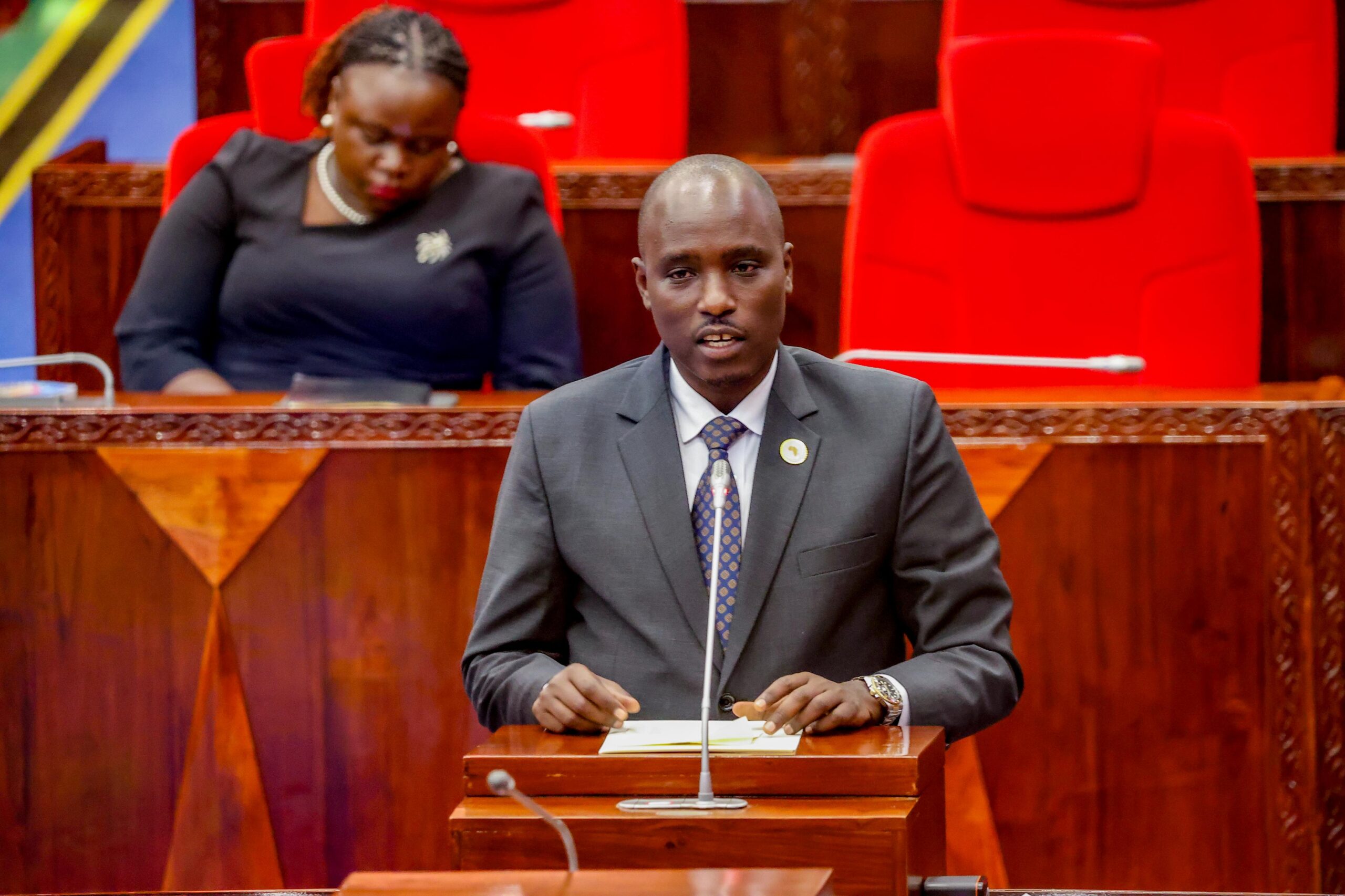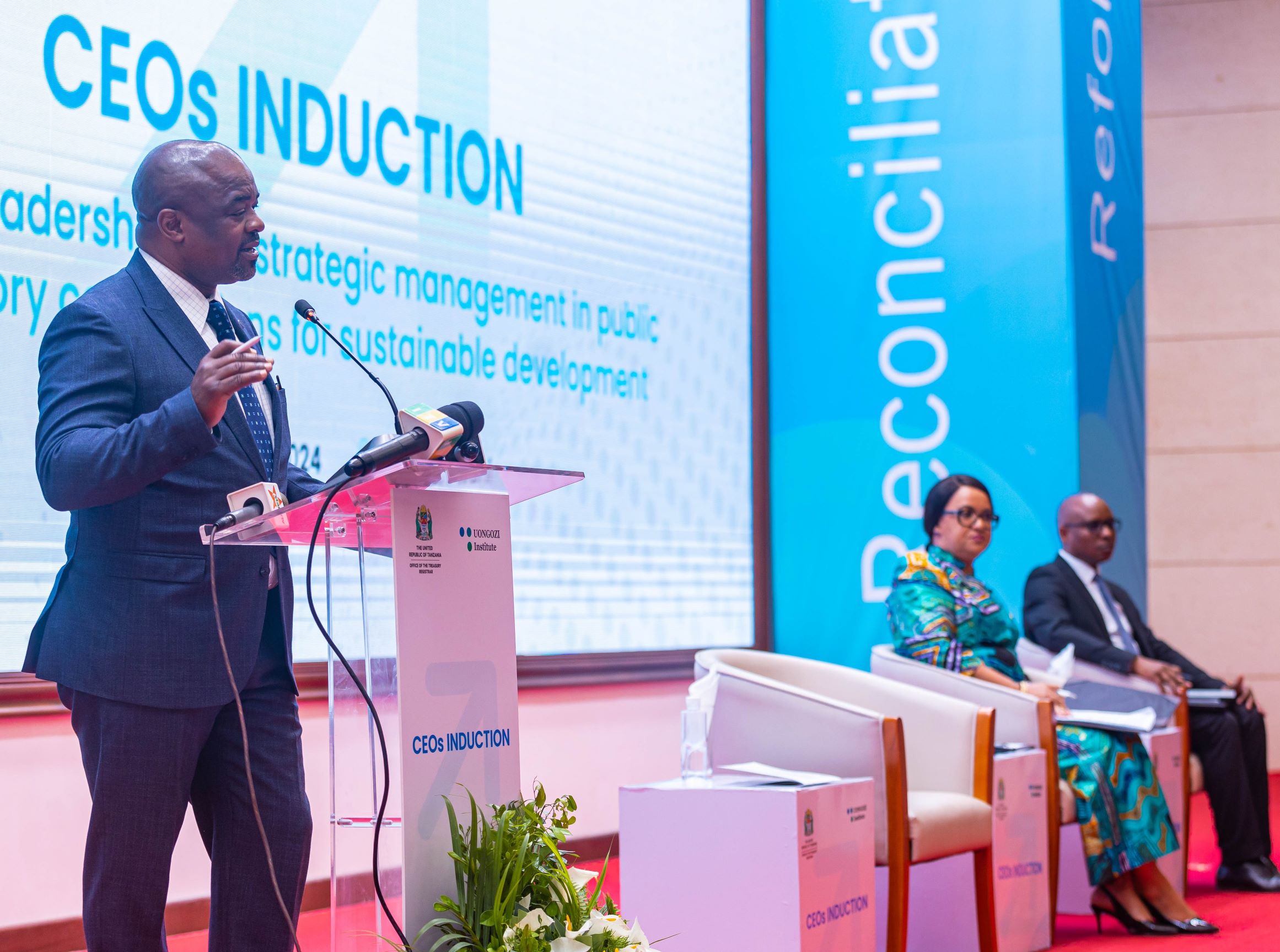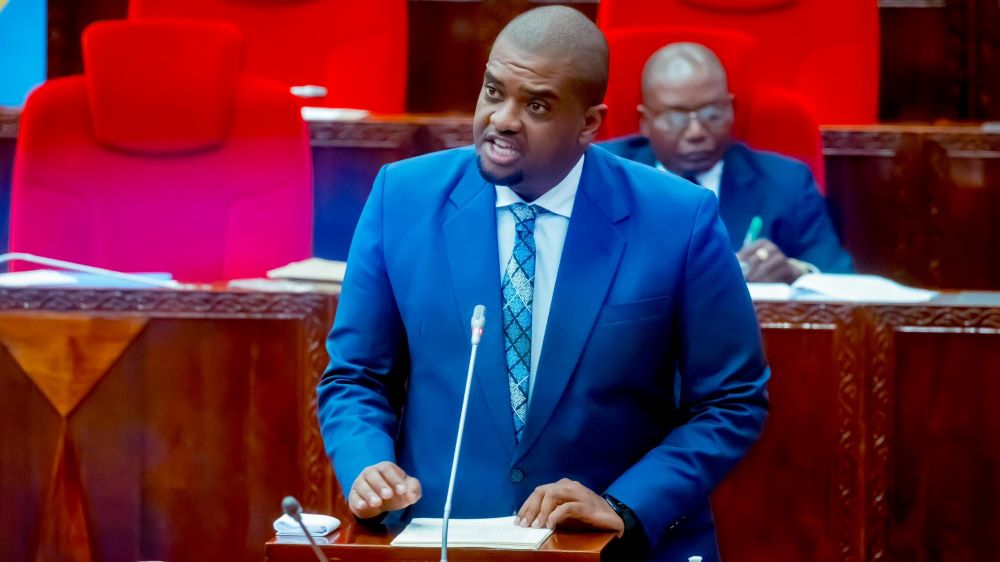Baku, Azerbaijan. The grand hall in Baku, Azerbaijan, was buzzing with activity. Delegates, experts, and global leaders from over 200 nations had gathered for the 29th Conference of the Parties (COP-29) of the United Nations Framework Convention on Climate Change (UNFCCC).
A few days ago, the world’s most pressing environmental issues were being debated under the flickering lights, but among the many discussions, one topic stood out: the blue economy.
The term, though gaining traction worldwide, was being championed by Tanzania as an emerging economic frontier—one that promised both environmental protection and economic prosperity.
With its strategic location along the Indian Ocean, Tanzania stood poised to capitalize on the rapidly growing global interest in the blue economy.
Mr Benny Mwaipaja, the head of the Communication Unit at Tanzania’s Ministry of Finance, sat in the back of the hall, his notepad ready.
His eyes were fixed on the podium, where Dr Ashatu Kijaji, Minister of State in the Vice President’s Office (Union and Environment), stood, preparing to read the speech of Dr Philip Isdor Mpango, Tanzania’s Vice President, who was unable to attend the event in person.
The speech would frame the future of the nation’s economy.
The excitement was palpable. Dr Mpango had long been an advocate for sustainable economic models, and today, his message was being shared with the global stage to bring attention to Tanzania’s potential in the blue economy—encompassing ocean-based industries like fisheries, tourism, renewable energy, and sustainable shipping.
As the speech began, Dr Mpango’s message was clear and compelling.
The Tanzanian government, he said in his speech, was opening new doors for international investment in the blue economy, with a focus on climate-resilient projects that would not only benefit the economy, but also contribute to global climate change mitigation efforts.
“The blue economy is more than just a buzzword,” Dr Mpango’s speech began, read aloud by Dr Ashatu Kijaji, Minister of State in the Vice President’s Office (Union and Environment).
“It is an opportunity for Tanzania, and indeed the world, to rethink how we engage with our oceans and waterways. We can create a sustainable, thriving economy that generates jobs, increases food security, and helps combat climate change.”
Building on this vision, Dr Kijaji outlined the specific sectors where Tanzania was actively seeking international support and investment.
Mr Mwaipaja, who had spent years in the field of communication, was immediately struck by the potential in what Dr Mpango was proposing.
The blue economy, he knew, had been discussed at global forums before, but Tanzania’s call for investment was different.
The country, with its vast coastline along the Indian Ocean and extensive marine and freshwater resources, was positioning itself as a key player in a rapidly growing sector that many nations had yet to fully tap into.
The conference room, filled with diplomats, environmentalists, and global financiers, listened attentively as Dr Kijaji outlined the various opportunities for investment in Tanzania’s blue economy.
“From sustainable fishing practices and the restoration of mangroves and coral reefs, to offshore energy projects and port development, Tanzania offers untapped potential in nearly every facet of the blue economy,” she explained.
The Minister highlighted several flagship projects that were already in motion: mangrove restoration initiatives, seaweed farming, and offshore wind energy ventures.
These efforts, she said, would help increase carbon sequestration, create sustainable livelihoods for coastal communities, and contribute significantly to the fight against climate change.
“We have identified key areas for investment,” Dr. Kijaji continued, “including deep-sea fishing, marine mineral extraction, and the development of green port infrastructure.”
She added: “These projects are not only profitable—they are sustainable. They align with international climate agreements, such as the Paris Agreement and the Kyoto Protocol, which commit us to reducing carbon emissions and protecting the health of our ecosystems.”
At this point, Prof. Riziki Shemdoe, the Permanent Secretary of Tanzania’s Ministry of Livestock and Fisheries, shared additional insights about the fisheries sector’s immense potential.
“Tanzania’s fisheries sector has substantial investment opportunities,” Prof. Shemdoe explained.
“Key areas such as deep-sea fishing, aquaculture for fish and seaweeds, and the production of fingerling fish feed are ripe for investment. Our aquatic resources offer vast, untapped potential for those looking to invest in sustainable, high-growth sectors.”
Mr Zahor Kassim El Kharousy, the Deputy Permanent Secretary for Zanzibar’s Ministry of Blue Economy and Fisheries, added his voice to the conversation, highlighting the broader socio-economic impact of the blue economy.
“We are optimistic that the implementation of the blue economy concept will help alleviate poverty, reduce hunger, improve gender equality and social inclusion, and create numerous employment opportunities,” Mr El Kharousy said.
“The blue economy will be a catalyst for economic growth and improved climate change resilience.”
These initiatives, highlighted by experts like Prof. Shemdoe and Mr El Kharousy, underscored the immense untapped potential of Tanzania’s blue economy for both economic growth and global environmental efforts.
Mr Mwaipaja took notes furiously. This wasn’t just a call for foreign investment; it was a powerful blueprint for a greener, more inclusive economy, where the private sector, government, and international organizations could work together to ensure that development did not come at the expense of the environment.
During the panel discussion that followed, prominent figures from international organizations such as the World Bank, the European Union, the United Nations Food and Agriculture Organization (FAO), and the International Union for Conservation of Nature (IUCN) expressed their support for Tanzania’s vision.
“We are fully behind Tanzania’s blue economy agenda,” said Dr Youssef Kassem, a World Bank representative.
“The opportunities for carbon credit generation, biodiversity protection, and economic growth are immense. By supporting this initiative, we are helping not just Tanzania, but the entire planet.”
The conversation shifted to the financial mechanisms required to support Tanzania’s ambitions.
“Innovative financing models, such as climate bonds and impact investing, will be critical to making these projects a reality,” said Andreas Mueller, a senior EU economic advisor.
“We are ready to partner with Tanzania to provide the necessary capital to kick-start these projects.”
The enthusiasm expressed by international bodies highlighted the recognition of Tanzania’s role as a leader in the blue economy, with support from global financial institutions eager to partner in these ventures.
As the day wore on, Mr Mwaipaja could see the impact of the discussions.
Tanzania’s ambitious blue economy projects had captured the attention of the world’s most influential financial institutions and environmental organizations.
The atmosphere was one of cautious optimism—there was work to be done, but the resources and the will were there to make a lasting impact.
At the close of the event, Dr Mwigulu Lameck Nchemba, Tanzania’s Minister for Finance, echoed the sentiments of the day’s discussions.
“The Blue Economy is an opportunity to build a sustainable future for all Tanzanians,” he said.
He went on to add: “This is not just about investment, it’s about creating jobs, preserving our heritage, and ensuring that future generations can enjoy the riches of our waters.”
As Mr Mwaipaja packed up his notes, he felt the weight of the moment.
Tanzania, with its strategic position on the Indian Ocean and its commitment to climate resilience, had laid the groundwork for a transformative shift in its economic landscape.
The blue economy was not just an environmental issue—it was a business opportunity that could unlock new industries, create jobs, and secure long-term prosperity for the country.
Back in Tanzania, the government had already begun making significant strides.
The Zanzibar Blue Economy Initiative, which aimed to harness the region’s natural resources sustainably, was gaining momentum.
The Mangrove Restoration Program had already begun showing positive results, with local communities involved in both protecting and harvesting these vital ecosystems.
And in the Southern regions, new seaweed farming ventures were providing income for thousands of families.
For Mr Mwaipaja, it was clear that the global community had a unique chance to make a meaningful difference in the fight against climate change while simultaneously fostering economic growth.
In Baku, Tanzania had presented itself as a nation ready to lead the way in the blue economy, not just as a passive participant, but as a pioneer.
As the COP-29 conference continued, Mr Mwaipaja couldn’t help, but feel a sense of hope for the future. Tanzania’s bold vision, paired with international cooperation, was a model for how nations could work together to build a more sustainable, prosperous world.
The blue economy wasn’t just an investment opportunity—it was a path to a better future for everyone. As the world turned its attention to the blue economy, Tanzania was not just seeking investment—it was offering a model for a future where economic growth and environmental sustainability go hand in hand.

